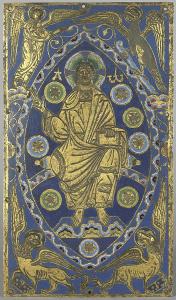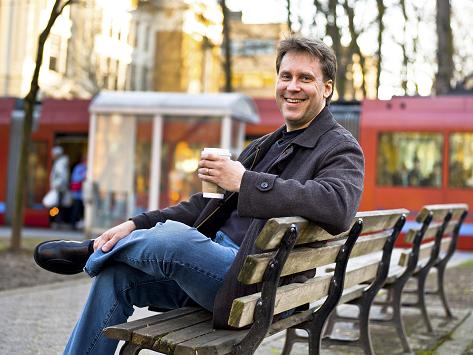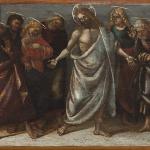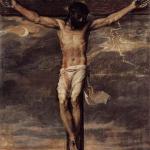
This blog post focuses on the porous relation of time and eternity. Such re-enchantment of everyday life helps me overcome an eternal now of melancholy. Rather than reliving traumatic experiences repeatedly, you and I can move forward and grow in resilient hope.
Hamlet: Time Out of Joint
Shakespeare’s Prince Hamlet said that “The time is out of joint” after the ghost of his father visited him. Shakespeare’s play Hamlet recounts how Hamlet’s father had been King of Denmark. The ghost informed Hamlet that his father’s brother and present king had murdered him and quickly married the queen with whom he had been in an adulterous relationship. The natural order was completely out of joint, as was Hamlet. Hamlet never recovered from the traumatic report and eventually met a tragic end.
Groundhog Day
As in the case of Hamlet, trauma can distort one’s sense of time. In some cases, one relives the past over and over again. Time is racing on, but the person dealing with trauma is in the same spot, a not so funny version of the film, Groundhog Day. Not even the hilarious sequel in the form of the 2020 Super Bowl commercial involving Bill Murray’s character, weatherman Phil Connors, along with the groundhog, riding around in a sporty new jeep, is enough to break the curse!
Trauma and Freeze-Framed Time
I struggle to guard against being trapped forever in the aftermath of my son’s traumatic brain injury. Life must go on, certainly not apart from my son Christopher, but with him. And yet, this movement forward is not easy. As one article makes clear, “Experiences of emotional trauma become freeze-framed into an eternal present in which one remains forever trapped, or to which one is condemned to be perpetually returned by life’s slings and arrows. In the region of trauma all duration or stretching along collapses, the traumatic past becomes present, and future loses all meaning other than endless repetition.” The same article also notes how “Alienation and estrangement” from others comes into play.
Reordering Time
I find it important to keep pressing on amid suffering and trauma, trying to improve Christopher’s prospects for a more meaningful life. For example, this morning, I accompanied Christopher and transport to his neuro-physical therapy session. I also find it important to continue connecting with others, such as family and friends, and engage in activities that put wind in my sails to make up for all the wind knocked out of me.
My devotional and academic reading, along with research projects and teaching, are critically important ‘therapies’. Sharing the unfolding, unfathomable story of our journey with Christopher regularly with compassionate souls who graciously follow our story also guards against alienation and estrangement. An eternity of traumatic events freeze-framed in time would be the end of me, and Christopher, too. I must continue to break free and reorder my daily use of time. In my estimation, this all makes good psychological sense.
Time with a Telos
However, it is not sufficient in my case to think simply of time in the secular sense, namely, time as indefinite duration. Certainly, there is a sense in which this is true in how our age looks at temporality. But as a Christian, I also account for the liturgical calendar and its framing of time biblically in a purposeful direction. Biblically and liturgically, time is neither disjointed nor indefinite. Time has a telos.
Ordinary Time: Ordered, not Mundane
With that point in mind, we are presently situated in the liturgical season of “ordinary time.” “Ordinary” should not be taken here to mean mundane, but “ordered.” I approach time with a sense of cosmic order and even transcendent purpose in view of God in Christ Jesus being the Alpha and Omega, the Beginning and the End (Revelation 22:12-13). It is also very important to account for the Spirit of Pentecost guiding and directing history to its culmination when Christ returns. The liturgical calendar each year reaches its climax on Christ the King Sunday, which reflects upon Christ’s lordship now and his return at the close of our secular age.
Buffered and Porous Time
This view of time suggests that there is no alienation and estrangement between history and eternity. They are interconnected. To draw upon Charles Taylor’s language of “porous” and bounded or “buffered” self (See A Secular Age, 37-38), I exist in view of eternity breaking into history. Like the self, time is porous in my estimation. The buffered self can disconnect from anything existing outside one’s mind. According to the buffered self outlook, the narrative that is most important is the one I craft psychologically. On this view, I do not allow distressing events and circumstances to penetrate my outlook on the world (Taylor, A Secular Age, 38). Certainly, there is a place for mental self-management and construction of meaning. After all, we cannot think outside our heads!
Bonhoeffer and the Re-enchantment of Time
And yet, a view of reality that involves porosity signifies that I account for God’s purposes in shaping my outlook. We find this view on display in Dietrich Bonhoeffer’s closing words shared with a fellow prisoner before the Nazis took him away to be executed. Bonhoeffer asked Captain Payne Best to pass the message to Bishop George Bell: “Tell the Bishop that for me this is the end but also the beginning. With him (the Bishop) I believe in the principle of our Universal Christian brotherhood which rises above all national interests, and that our victory is certain” (Quoted in Costly Grace,133).
This outlook re-enchants the universe for me, not the kind Taylor would apparently reject wholesale, namely a return to a “world of spirits and meaningful causal forces, of wood sprites and relics.” (553) Taylor is absolutely correct in guarding against equating religion with an enchanted outlook on life. Religion does not end with the elimination of an enchanted world, as Max Weber appears to have argued at times. As Taylor argues, “Reformed Christianity, both Catholic and Protestant–have been built on its partial or total denial. We cannot just equate the two.” (553) But it is still a re-enchanted outlook that I find on display in Bonhoeffer.
Overcoming Melancholy with Maranatha

The Christian hope helped Bonhoeffer not give way to a completely melancholic outlook. Certainly, he endured suffering and trauma. But he and the community of faith were confident that their universal Christian solidarity grounded in what I take to be their faith in the risen, reigning, and returning Lord Jesus gave them reason to persevere. For Bonhoeffer, I believe, everything hinged on the totus Christus, namely, Christ choosing to be complete with the church.
The church triumphant must continue to encourage one another in view of this hope, as we find at the close of John’s Apocalypse: “The Spirit and the bride say, ‘Come!’ And let the one who hears say, ‘Come!’ Let the one who is thirsty come; and let the one who wishes take the free gift of the water of life… He who testifies to these things says, ‘Yes, I am coming soon.’ Amen. Come, Lord Jesus.” Maranatha. (Revelation 22:17-20; NIV)
It is this resilient hope that ultimately sustains me and frees me from the Groundhog Day cycle, that is, the eternal repetition of our traumatic experience. No matter how many seemingly mundane hours caring and advocating for my son, Christopher (meaning Christ-bearer), no matter the outcome takes place, we persevere. We not only persevere, but experience life as an adventure as we bear Christ and Christ bears us. For Christopher and me, it is never the end, but only just the beginning!














